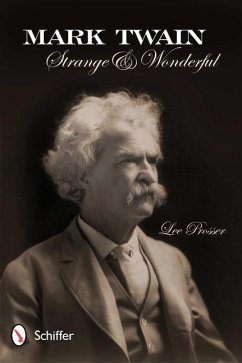
The Letters of Mark Twain Vol.3

PAYBACK Punkte
9 °P sammeln!
Purchase one of 1st World Library's Classic Books and help support our free internet library of downloadable eBooks. 1st World Library-Literary Society is a non-profit educational organization. Visit us online at www.1stWorldLibrary.ORG - - The Monday Evening Club of Hartford was an association of most of the literary talent of that city, and it included a number of very distinguished members. The writers, the editors, the lawyers, and the ministers of the gospel who composed it were more often than not men of national or international distinction. There was but one paper at each meeting, and ...
Purchase one of 1st World Library's Classic Books and help support our free internet library of downloadable eBooks. 1st World Library-Literary Society is a non-profit educational organization. Visit us online at www.1stWorldLibrary.ORG - - The Monday Evening Club of Hartford was an association of most of the literary talent of that city, and it included a number of very distinguished members. The writers, the editors, the lawyers, and the ministers of the gospel who composed it were more often than not men of national or international distinction. There was but one paper at each meeting, and it was likely to be a paper that would later find its way into some magazine. Naturally Mark Twain was one of its favorite members, and his contributions never failed to arouse interest and discussion. A "Mark Twain night" brought out every member. In the next letter we find the first mention of one of his most memorable contributions - a story of one of life's moral aspects. The tale, now included in his collected works, is, for some reason, little read to-day; yet the curious allegory, so vivid in its seeming reality, is well worth consideration.













